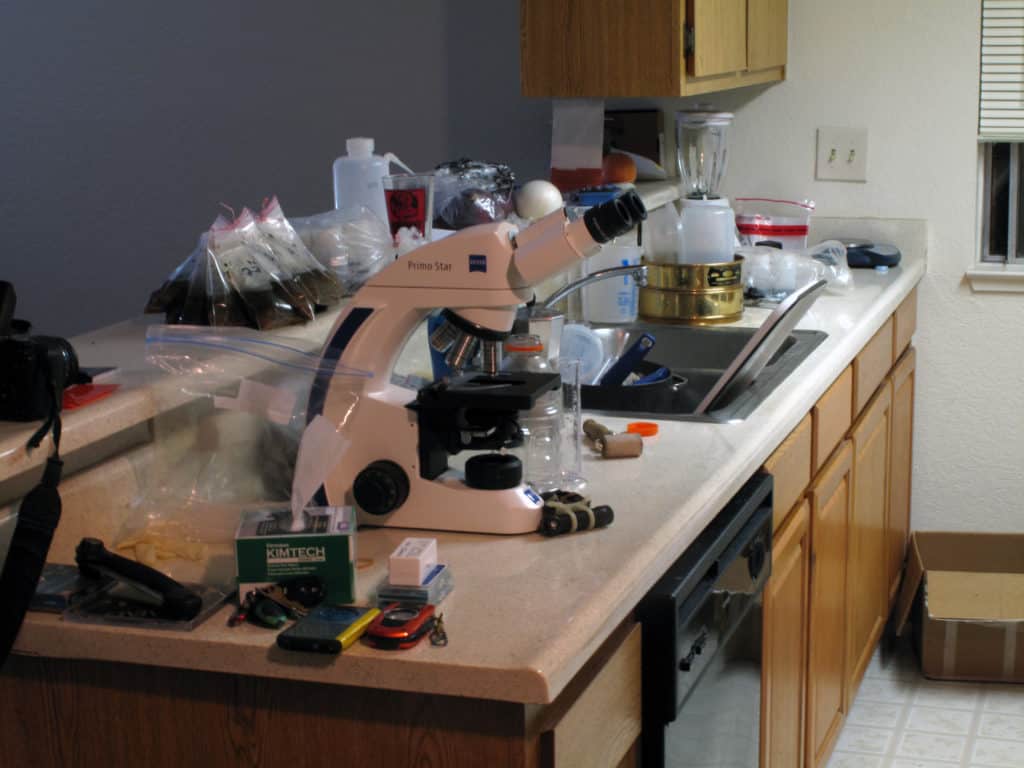“When we turn to one another for counsel we reduce the number of our enemies”
-Khalil Gibran

We are in the thick of our fall sampling which started in late September and will go until the end of November. The idea behind the fall sampling is to give each of the sixteen beekeepers involved in the Bee Informed Partnership a “snapshot in time” of some of their hives before heading into winter. The hives will be reassessed and sampled again in January and February to see how they have come through the winter.
Providing hive history through regular inspections and sample collection over the course of the year will make it easier for the beekeepers in our program to track their hives. This should help them keep a pulse on the progression of the tagged hives and influence breeder selection.
Some of the beekeepers we are working with will make treatment decisions based partially on the Varroa and Nosema levels we report to them. We visited a beekeeper this week that was hoping to do just that. He asked specifically if we could have his Varroa numbers to him by Monday morning so he would have an idea of what his levels were like before he began treating. With much of the week being spent in the field it was hard to find time to get to the lab to process the beekeepers samples…So we decided it would be best to process them from home. The picture above shows the make shift lab we set up in the kitchen where alcohol samples were processed for both Varroa and Nosema.
Things to look for in the picture:
-The compound microscope used to count and identify Nosema
-The plastic bags filled with macerated bees used to collect a sample for Nosema testing
-The brass sieves used to separate bees from mites to determine Varroa infestation
Half of the one-hundred samples we collected from the beekeeper last Tuesday were processed for Varroa and Nosema on Friday night by our team here in California. The results were emailed to the beekeeper Saturday morning and he will begin treating Monday morning. The remaining fifty samples have been sent to the USDA Bee Research Lab in Beltsville, MD where our east coast team will process the remainder for Varroa and Nosema. In a week the team in Maryland will have the results and generate a report that we will give to the beekeeper summarizing the results of Varroa and Nosema levels and our hive assessments.